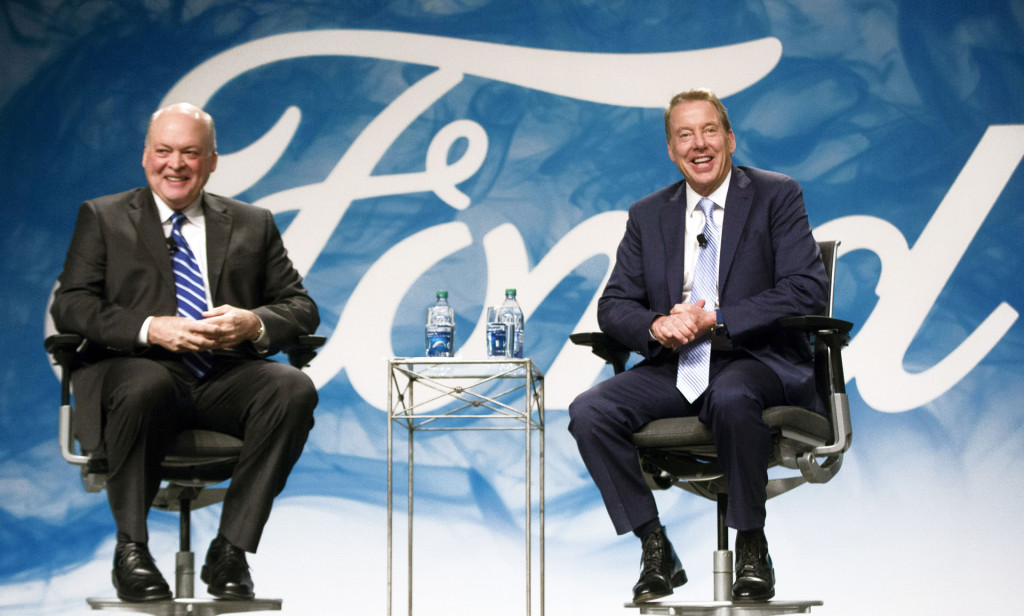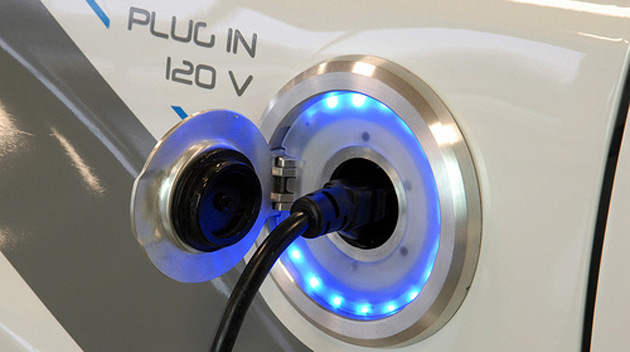With an evolving shift to electrified and plug-in electric cars, the changes that will bring to the auto industry are far from limited to the powertrains.
The entire mass-production and vehicle assembly process the industry pioneered a century ago will require major restructuring, it appears.
Electric cars require significantly fewer parts and components, while electric powertrains feature less specialization than internal-combustion engines.
DON'T MISS: Electric cars necessary to protect Mercedes jobs, says labor leader
What do fewer components and less specialization per automaker potentially mean? Probably fewer jobs in the auto industry.
The United Auto Workers union recently responded to Ford's latest strategy, which includes a $14 billion reduction in costs and a shift in capital investment to trucks and SUVs—and also to electric cars.
Specifically, new Ford CEO Jim Hackett called for a 30-percent reduction in the "hours per unit" to assemble electric cars.

Jim Hackett (left) and Bill Ford Jr.
Fewer hours of work means a smaller total of workers needed for production. The UAW fears Ford could eliminate thousands of production jobs to cut costs, according to Reuters.
“We’ve been doing our due diligence to find out how much it (electrification) means to us,” said UAW Vice President Jimmy Settles, head of the union’s Ford department.
He said the UAW and Ford agreed it's best that discussions on that topic include both parties in the years to come.
READ THIS: Ford fires CEO Fields, in part, for lagging on electric cars
Daimler, parent company of Mercedes-Benz, faced a similar potential consequence last year.
German labor leaders insisted Daimler must build its own electric-car components at a large scale, rather than outsource the non-specialized work, to save German jobs.
At the time, Michael Brecht, Daimler works council chief, said the number of workers required to build internal-combustion engines is "roughly tenfold" the amount required for electric motors.
Ford plug-in hybrid
Settles said he met with Hackett in a one-on-one meeting to discuss Ford's future strategy and the CEO assured him job cuts were not on the table.
“He’s been consistent in what he’s saying and I‘m optimistic he means it,” Settles said of the meeting.
Hackett's strategy may also include union-represented jobs performed outside the company's production facilities.
CHECK OUT: Ford to cut engine funding by one third, invest in electrics, autonomy
Ford recently announced a $200 million investment for a Michigan-based data center; union workers could staff the new facility in the future and fill the various technology-related job positions.
Moving forward, Settles added both the UAW and Ford have set up teams to hold ongoing discussions over future jobs for production and tradesmen.
Hackett's future Ford strategy also includes a one-third reduction in new engine investments in favor of electric powertrains and self-driving car technology.
_______________________________________












